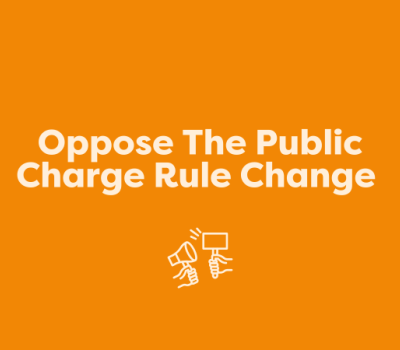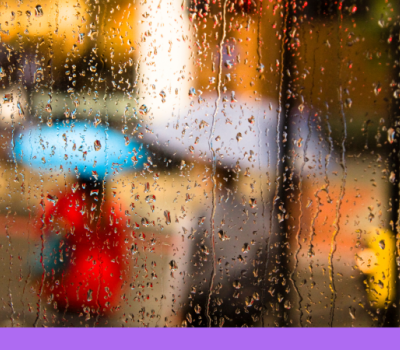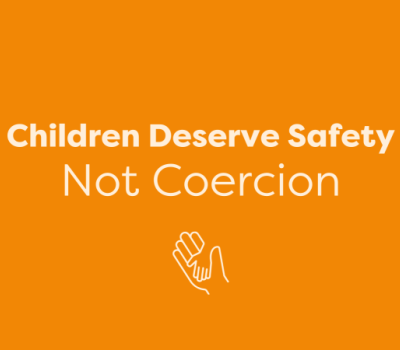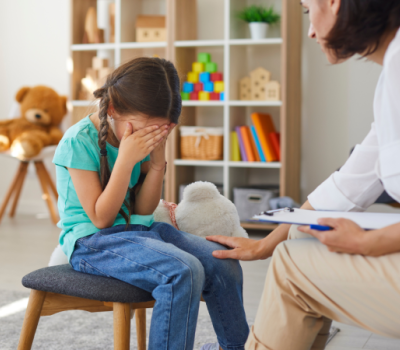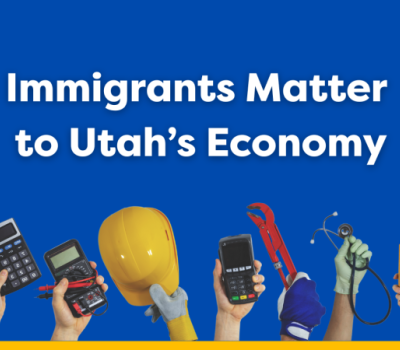The spotlight on immigrants and immigration policy in national policy and media coverage has intensified over the last seven months. Here, local families feel directly what that means for themselves, their futures, and their communities. Whether it's about immigration policy, border enforcement, deportation, Immigration and Customs Enforcement (ICE), and detentions, we have all been flooded by our social media feeds, communities, and conversations for the past seven months about immigration.
The policy changes being made will have long-lasting effects on our state as a whole and our community members. In June, we sat down with Yvette Romero Coronado, a Licensed Clinical Social Worker, to discuss some of these impacts, mental health, and what wellness in the immigrant community means.
Below are key insights from the conversation.
Click Here For The Full Instagram Live
Mental Health of Immigrant Families
There are unique stressors that immigrants and their children are facing right now due to policy changes that are directly impacting their families. During the first Trump administration, increased fear led to adverse effects on health and well-being among a range of immigration statuses. [1] Yvette shared similar experiences to immigrants locally who are facing fear or “susto”, anxiety, panic, hyper-vigilance, and rage. Right now, immigrant families are expressing a wide range of emotions, and there is no “one size fits all” feeling.
Immigrants are using different survival strategies to cope. Some people are scared of leaving their homes, scared of going to see their doctors, scared of going to court hearings, and opting out of celebrations like graduations. This is similar to what was seen under the first Trump administration across various statuses, from undocumented immigrants to green card holders or naturalized citizens. [2] Others feel pressure to fit into a “perfection” mold, trying to avoid trouble and not make any mistakes at work.
As we navigate this moment, immigrant children feel the burden at great lengths. Yvette shared how some children of immigrant parents are constantly tracking their parents out of worry and carrying heavy burdens of navigating systems and essential information. Children exposed to these deportation threats and fears have shown higher levels of stress and anxiety, which could result in long-term health issues. [3]
While much remains uncertain, leaning into that truth and honoring that feeling will continue to help immigrant communities navigate this moment with more courage and balance.
Pláticas, Chisme, and Chicken Soup
While access to Western mental health options is often limited for immigrant communities, Yvette reminded us of generational and cultural wisdom that has existed in immigrant communities for centuries. She encouraged immigrants to lean into ancestral practices and collectivist cultures to use remedios caseros (home remedies), teas, limpias, or even sopa de pollo (chicken soup) as part of their mental health habits. She also encouraged using daily habits of movement, sleep, and nourishment. Additionally, as community plays a vital role in immigrant communities, she encouraged everyone to “find their people,” and adding chisme as part of our daily self-care.
While it is essential to understand the differences between everyday stressors and toxic stress, she emphasized how much wisdom and knowledge can already be tapped into by communities, without facing struggles alone. In a moment where we are flooded with news that can bring fear and worry, Yvette reminded us that this can co-exist with setting boundaries and finding affirmations, which can help us honor our feelings and the need to stay informed.
Gentle Reminder: You are Not Broken
To immigrants and children of immigrants, we were reminded by Yvette:
You’re not broken. Each of us, based on our DNA (and how ancestrally they are living in us), and the context in which we live, has developed different parts of ourselves to survive. Apapachate, care for yourself, be gentle with yourself
“El cuerpo es una biblioteca.” - Doña Queta
You’ve developed necessary survival strategies, and as you learn more, Yvette encouraged us to lean into that and incorporate those new learnings into our coping strategies and daily lives. Healing is collective, and we are grateful to Yvette for joining us and sharing her wisdom and insights about immigrants and ways we can continue to navigate this difficult moment for immigrant families. For additional mental health resources, please visit the Utah Immigrant Advocacy Coalition: u-iac.com
Thank you, Yvette, for your wisdom, knowledge, and thoughtful conversation.

Yvette Romero Coronado (she/her) is the granddaughter and daughter of Mexican migrants, farmworkers, dreamers, home remedy makers, and people who talk to their plants. She draws on the wisdom of her ancestors to become a good ancestor and to be a loving and responsible guest on the enduring lands of the Eastern Shoshone, Goshute, Piute, and Ute peoples. She loves tea, time spent with loved ones sharing stories, and time in nature.
Yvette is a bilingual (Spanish/English) and multicultural Licensed Clinical Social Worker. For over 15 years, Yvette has worked alongside communities to build systems and programs that prioritize access, belonging, equity, and well-being.
[2] Ibid



